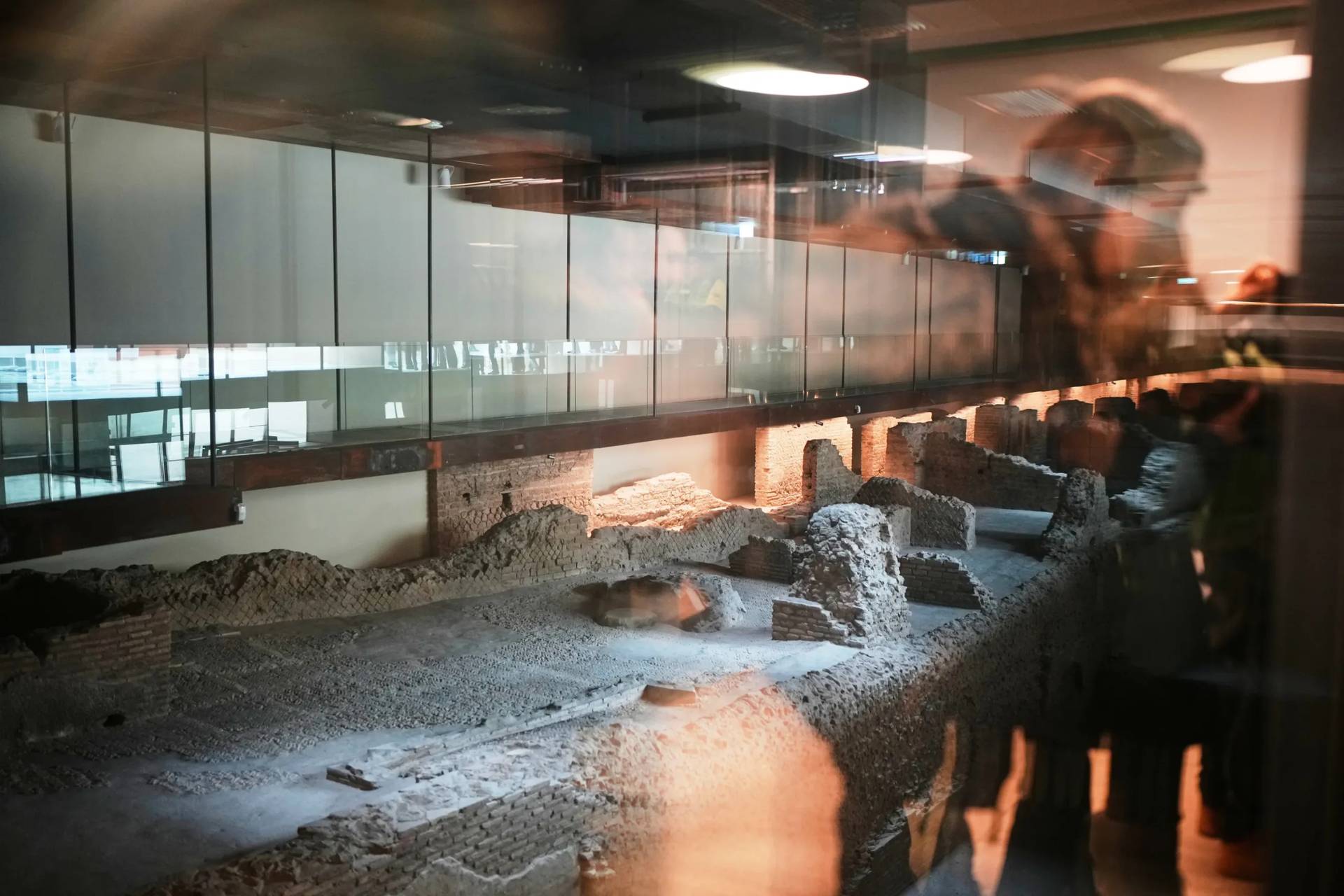ROME – Global Catholic leaders have raised their voices over the deaths of more than 30 people in mass shootings over the weekend in the United States, with several in both Mexico and Italy condemning racism and calling for stricter gun policies.
On Aug. 3 a mass shooting at a Walmart Supercenter in El Paso, Texas left some 22 people dead, most of whom were of Mexican decent. A separate shooting took place in Dayton, Ohio just a few hours later at a popular downtown area, leaving 9 people dead, including the shooter.
Patrick Crusius, 21, who was arrested as the alleged shooter in the El Paso massacre, reportedly told authorities that he tried to shoot as many Hispanics as possible, prompting many to decry the gruesome act as a racist hate crime.
On Aug. 4, a day after the tragedy, the Mexican bishops’ conference sent a message via Twitter saying “We pray and express our closeness with the families of the victims who lost their lives, in #ElPaso shooting. And for the so many who lose their lives in our country daily.”
“We make a call for everyone to look at each other as brothers, regardless of skin color or nationality,” they said.
In a separate tweet, Bishop Alfonso Miranda Guardiola, auxiliary bishop of Monterrey, sent “our support and prayer for all Hispanics who are in the US. Especially for our compatriots who are being threatened by xenophobic speeches and a culture of hate towards them.”
According to Italian newspaper Toscana Oggi, Italian President Sergio Mattarella sent a message to U.S. President Donald Trump voicing his “sadness” over the shootings.
“In condemning with utmost firmness these gestures of treacherous violence, the whole of Italy is seized with pain for the people of the United States of America,” he said, offering “affectionate thoughts” and solidarity to the families of the victims.
He wished the wounded a speedy recovery, stressing that the United States “will always be able to count on our determination to oppose the increasingly worrying climate of intolerance which generates violence even inside of our free and democratic societies.”
In the aftermath of Sunday’s shootings, Trump was criticized for his inflammatory rhetoric on immigration, often saying that the U.S. is facing an “invasion” of immigrants from South and Central America, many of whom are fleeing violence or poverty.
RELATED: San Antonio archbishop condemns Trump’s ‘hate and racism’
These recent shootings have also revived the ongoing debate in the United States over gun control and right to carry laws.
Since the 1990s the U.S. bishops have pushed for a comprehensive approach to reducing gun violence, including tighter gun control laws that feature a ban of assault rifles, increased security screenings and background checks, and improved mental health care.
Gun control debate hits Italy after populist government pushes to loosen regulations
This debate reverberates even in Italy, which has for decades supplied the U.S. military with its standard pistol, and, according to Small Arms Analytics, has produced $1 billion worth of the estimated $2 billion of shotguns imported to the U.S. over the past decade.
While domestically few Italians have guns, analysts say a growing insecurity has prompted an uptick in the number of Italians wishing to arm themselves for security.
The government currently requires a license to purchase a gun and a separate license to carry. It also limits how many guns a person can own, how much ammunition they can keep, and it prohibits both automatic and many semi-automatic firearms.
However, Italian deputy Prime Minister Matteo Salvini earlier this year put forward a “legitimate defense bill,” which is reminiscent of the “stand your ground” laws in some U.S. states, allowing a person to use lethal force, including firearms, in self-defense against an intruder. In March the Italian senate passed the bill with a vote of 201 to 38, despite Italy’s falling crime rates.
Among other things, it drops the requirement of proof that an intruder posed an immediate physical threat, saying a perceived threat of violence is enough to take lethal action. The new law also offers free legal aid and defense counsel to those who have killed or injured an intruder.
Despite the bill’s success, not everyone is sold on the self-defense argument.
Italian Father Marco Gnavi, the pastor of Santa Maria in Trastevere parish who oversees the area of “dialogue and ecumenism” for the diocese of Rome and the Italian Sant’Egidio movement, said gun control – whether in Italy, the U.S., or elsewhere – is a question of peace and stability.
Speaking to Crux, he said the Catholic Church has a history of favoring stricter gun control, which he said has been made clear by Pope Francis, who often condemns violent atrocities and who has promoted nonviolence as a strategy for world peace.
Since World War I the Church has been pushing for disarmament at all levels, Gnavi said, adding, “We know for sure that either light weapons or nuclear weapons are a threat to the future of humanity; in different ways of course, but there is a sowing of hatred.”
“Whenever we give attention to light or heavy military weapons, we destroy our future,” he said, explaining that while mass shootings like the ones that happened in El Paso and Ohio seem “senseless,” when anger and white supremacist ideologies are factored in, “then weapons are the fuel to make wounds in the body of the people.”
With some 255 mass shootings in the U.S. since January, leaving nearly 300 dead and more than 1,000 injured, Gnavi said the numbers themselves pose serious questions to those with political power, as well as Christians.
“We have to soften tensions and enable people to fight evil with good,” he said, adding that “it is clear that violence is a problem even for those who inspire violence. They will be victims of themselves.”
Possession of light weapons, even for self-defense, “is already a temptation,” he said, explaining that simple disagreements could turn violent if a gun or knife is on hand.
“The more we arm the hands of the people, the more we will be victims of ourselves,” he said. “Violence has a deepening trend which is not up to us to be controlled. Once you shoot for good or bad reasons, shooting will increase.”
In addition to Gnavi, several Vatican publications also weighed in on the shootings, including Vatican newspaper L’Osservatore Romano, the “Vatican News” website, and Avvenire, the official newspaper for the Italian bishops’ conference. Notably, they each referred to statements made by the U.S. bishops, rather than issuing their own.
In an interview with Vatican News on the topic of gun control, Giorgio Beretta, a gun control advocate who works at the Permanent Observatory on Small Arms, Security and Defense Policies of Brescia, said the debate over gun control could flare up after a recent study released by Eures, which reports that firearms are the most used weapons in family homicides.
“Today it could be a big problem in Italy too,” Beretta said, noting that gun control laws are more restrictive at the level of the European Union.
Widening access to guns “poses a problem of mentality in Italy,” he said, adding that in light of Italy’s new law, gun control is “a big problem that we must ask ourselves very soon, because already today family homicides are carried out above all with firearms.”
In his comments to Crux, Gnavi said that if weapons are in the house, “sooner or later someone will use it, some blood will be spilled.”
“Who is (responsible for) declaring what is the line I cross to defend myself?” he said, adding, “Sometimes we are not so clear in our hearts and minds…the mental shape of self-defense can go far beyond self-defense; it might be the beginning of a local war.”
Follow Elise Harris on Twitter: @eharris_it
Crux is dedicated to smart, wired and independent reporting on the Vatican and worldwide Catholic Church. That kind of reporting doesn’t come cheap, and we need your support. You can help Crux by giving a small amount monthly, or with a onetime gift. Please remember, Crux is a for-profit organization, so contributions are not tax-deductible.















